Key takeaways:
- Unethical behavior in advocacy can undermine trust; honesty and integrity are essential for effective communication.
- Pro-life advocacy requires empathetic dialogue to shift societal perceptions and provide support to women facing unplanned pregnancies.
- Addressing misinformation and encouraging open communication can foster understanding and healing between differing viewpoints.
- Effective communication balances assertiveness with empathy, using personal stories to connect and engage audiences in difficult discussions.
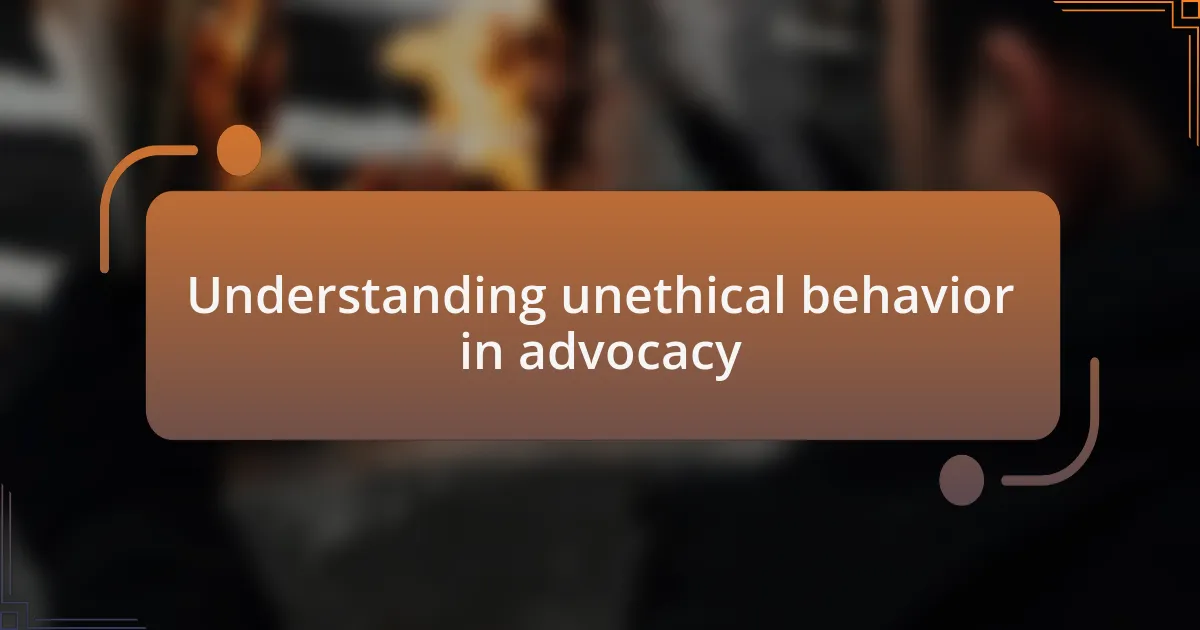
Understanding unethical behavior in advocacy
Unethical behavior in advocacy often manifests when individuals prioritize their agendas over honest discourse. I recall a time when a fellow advocate exaggerated statistics to bolster an argument. It made me wonder: how can we expect to build trust and inspire real change if we don’t hold ourselves accountable to the truth?
There’s a fine line between passionate advocacy and manipulation. I once encountered a campaign that leveraged fear tactics to sway opinion, which left me feeling uneasy. It’s crucial to engage with our audience respectfully; after all, if we don’t believe in the integrity of our message, how can we expect others to?
Understanding unethical behavior means recognizing the potential harm it creates not just to individuals, but to the movement as a whole. Have you ever felt your convictions tested by tactics you deemed inappropriate? It’s a sobering realization that, ultimately, our actions reflect on the broader cause, impacting how we are perceived by the public and by each other.
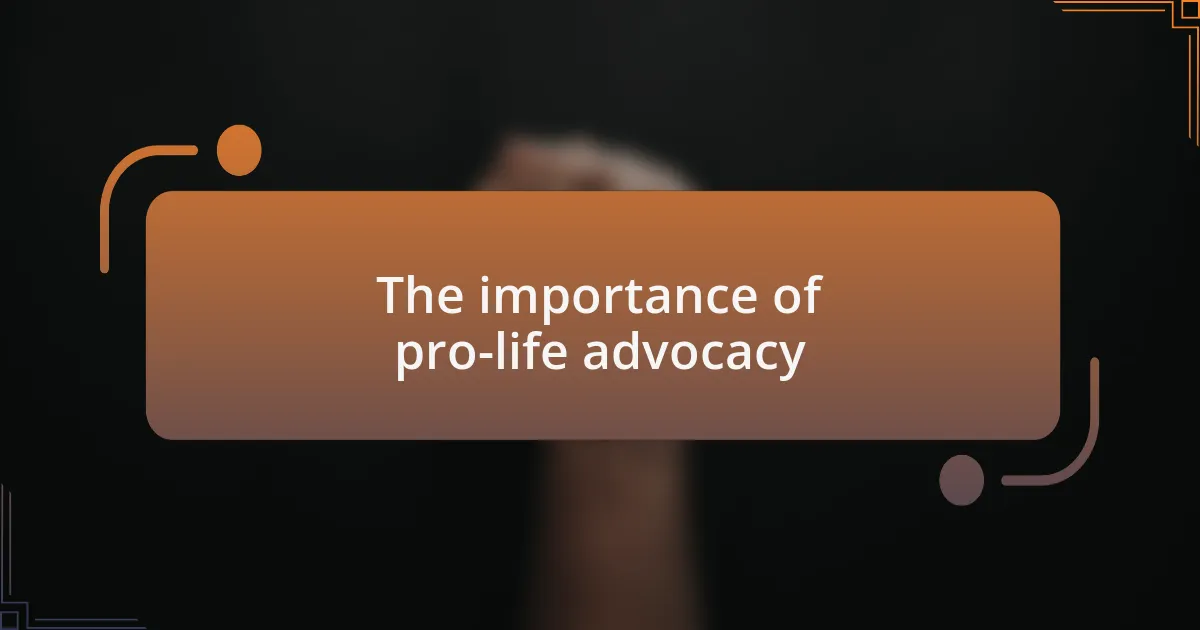
The importance of pro-life advocacy
Advocating for pro-life principles holds immense significance in fostering a culture that respects the sanctity of life. I remember attending a rally where the voices of both sides passionately filled the air, but it struck me how critical it is for pro-life advocates to communicate compassionately. How can we expect to shift societal perceptions when our conversations lack empathy?
Moreover, pro-life advocacy plays a vital role in providing support for women facing unplanned pregnancies. I’ve seen firsthand the struggles that can arise, and I believe it’s essential that we offer not just a stance, but a genuine lifeline through resources and understanding. Have you ever considered how a simple act of kindness can ripple through a community, creating lasting change?
Lastly, the importance of pro-life advocacy extends beyond immediate issues; it shapes the moral framework of society. In my journey, I’ve encountered people who shifted their views after engaging in respectful dialogues. Isn’t it powerful to think that through our advocacy, we can influence hearts and minds, ensuring that life is valued at every stage?
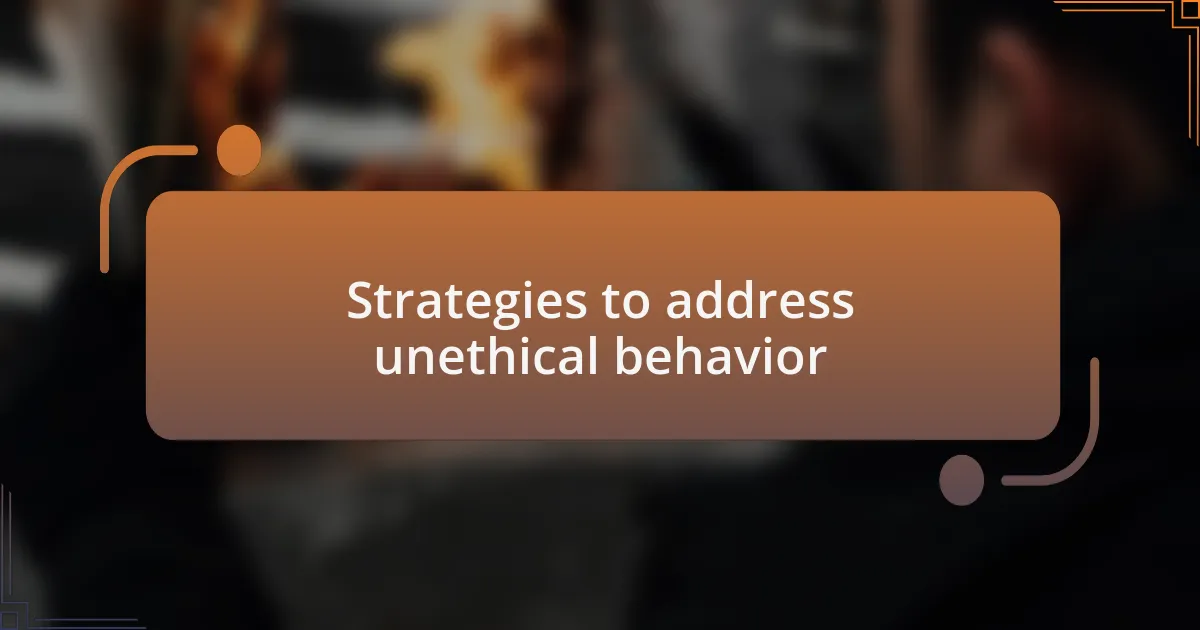
Strategies to address unethical behavior
Addressing unethical behavior requires a proactive approach that blends courage with thoughtful action. I recall a situation where misinformation about pro-life stances was being spread in a local community group. Instead of remaining silent, I decided to engage in a calm discussion, presenting facts and emphasizing the importance of empathy in our conversations. Isn’t it remarkable how a reasoned response can illuminate the truth while fostering a respectful dialogue?
Another effective strategy is to create spaces for open communication. I once facilitated a workshop where people from varying viewpoints shared their experiences and concerns regarding pro-life issues. The atmosphere was charged with emotion, but ultimately, it became a healing ground for misunderstandings. How can we possibly bridge divides if we don’t take the time to listen and understand each other’s perspectives?
Furthermore, utilizing social media platforms can be a powerful tool for addressing unethical behavior. I’ve seen firsthand how a single post that clarifies misconceptions can reach thousands, sparking conversation and reflection. Have you ever thought about how your voice can cascade through digital channels, influencing others who might be seeking clarity? Through strategic online engagement, we can not only counteract negativity but also promote a positive narrative surrounding pro-life advocacy.
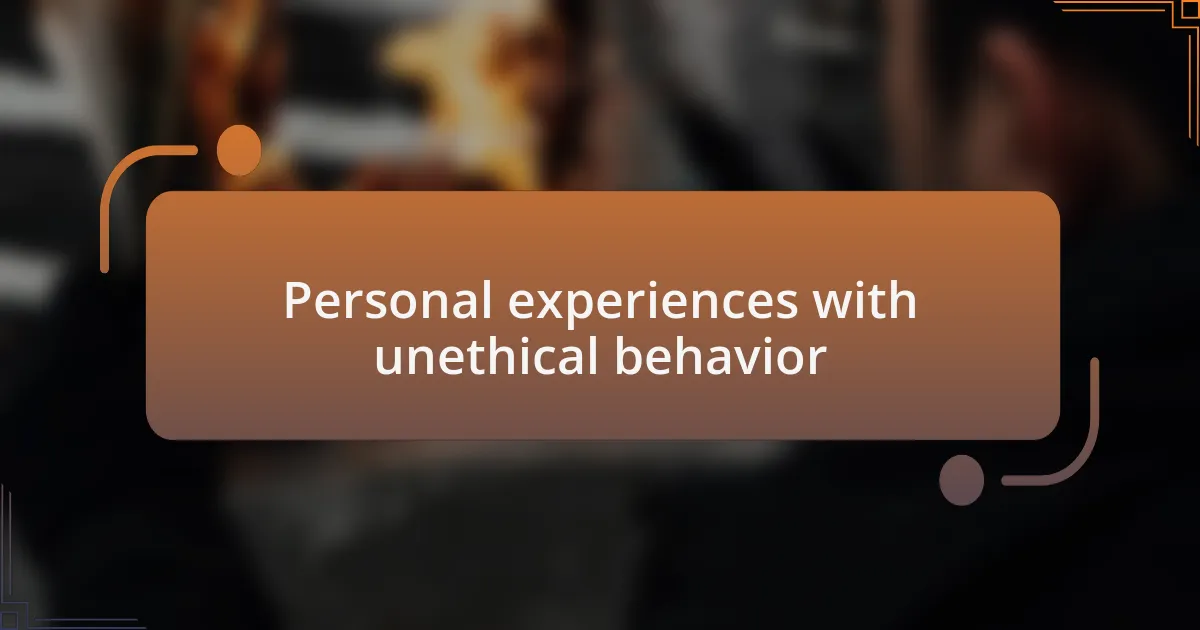
Personal experiences with unethical behavior
During my time advocating for pro-life issues, one experience stands out vividly. I encountered a situation where a popular article distorted our message, framing pro-life advocates as solely anti-choice. That felt incredibly unfair and disheartening. I reached out to the author with the hope of sharing the core values behind our stance, emphasizing our commitment to compassion for all lives. Can you imagine trying to change someone’s narrative through honest dialogue?
There was another moment when I stumbled upon a debate that spiraled into insults and accusations. It broke my heart to see individuals from both sides becoming entrenched in hostility rather than understanding. I decided to step in, sharing my personal journey of loss and hope, and it shifted the tone entirely. Isn’t it amazing how vulnerability can bring people back to a place of empathy rather than division?
Looking back, I remember a heated town hall meeting where misinformation was rampant, and emotions ran high. I felt compelled to speak up, sharing factual data and personal stories from those who had been positively impacted by pro-life initiatives. The tension in the room was palpable, but as I shared my experiences, I saw more than a few faces soften. Isn’t it powerful how reaching out from a place of authenticity can create change in even the most charged environments?
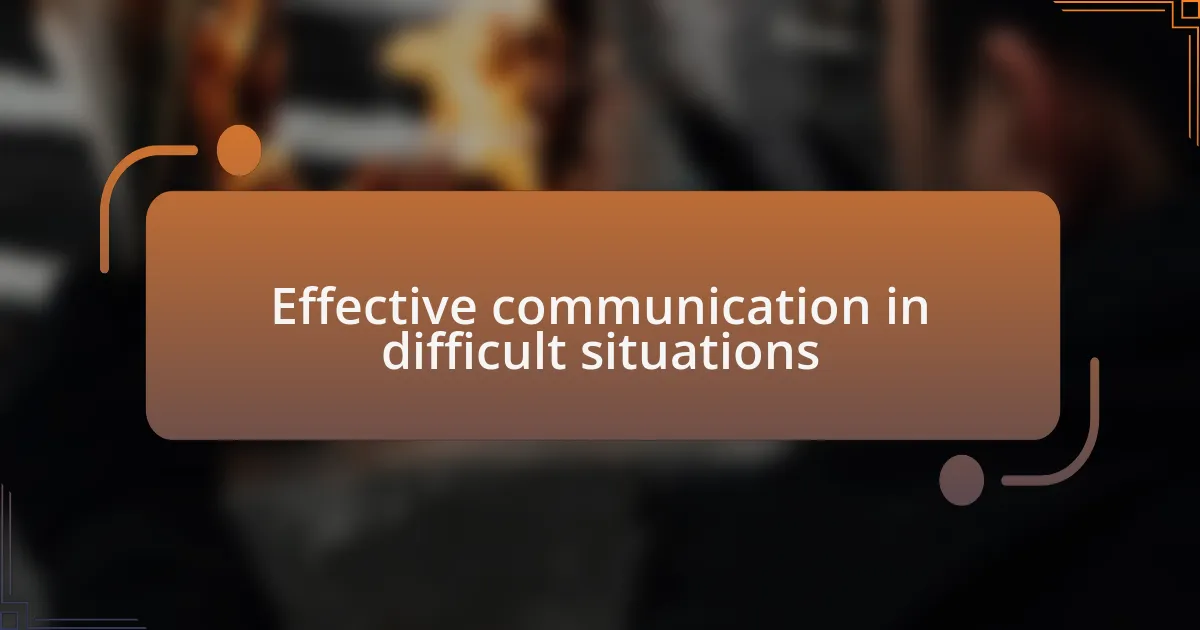
Effective communication in difficult situations
Effective communication in difficult situations often requires a delicate balance between assertiveness and empathy. I recall a rally where a particularly aggressive protestor shouted claims that misrepresented our beliefs. Rather than reacting defensively, I took a deep breath and calmly engaged by asking questions to clarify their perspective. This approach not only defused the anger but also opened up a dialogue that led to a mutual understanding. Have you ever noticed how a simple question can shift the atmosphere in a tense moment?
During a community event, I encountered a mother visibly upset after a speaker made a dismissive remark about women facing unplanned pregnancies. Understanding her pain, I approached her afterwards, listened intently, and validated her feelings. It struck me how this genuine connection helped her feel heard, reminding me that sometimes all we need is to know that someone cares. Isn’t it heartwarming to recognize how effective communication fosters empathy in even the most challenging conversations?
I vividly remember a time when I facilitated a discussion intended to address misconceptions about pro-life advocacy. The room was filled with skeptical faces, and I knew I had to go beyond statistics. I chose to share a poignant story about a family I knew who chose life in the face of adversity. The shift in expressions was immediate; eyes softened, and nods of understanding replaced the initial resistance. Can poignant storytelling be more compelling than facts in bridging tough conversations?